Dirt Bike Financing Canada
Dirt biking isn’t just a hobby; it is a lifestyle. Whether you’re dreaming of cruising through the backtrails on a Honda, tackling the rough terrain on a Yamaha, or racing through the mud on a KTM—buying a dirt bike can be a very exciting purchase.
But all you avid riders may be wondering how to finance one if you don’t have the cash readily available.
Let’s explore everything you need to know about dirt bike financing in Canada.
Dirt Bike Financing — Key Points You Should Know About
- You can finance a dirt bike through banks, credit unions, private lenders, dealerships (with in-house financing), or directly from manufacturers.
- Financing is available for both new and used bikes of any brand including Honda, Yamaha, Kawasaki, Suzuki, Husqvarna and Triumph.
Can You Finance A Dirt Bike?
Yes, you absolutely can finance a dirt bike! Financing a dirt bike is a common way of spreading the cost of your purchase over time, similar to financing a car or motorcycle purchase.
Like a car loan, you can generally borrow money from a bank, credit union, or a private lender if you have bad credit. Similarly, many dirt bike dealerships offer financing in-house or through third-party lenders they have partnerships with. Depending on the dirt bike brand, you may also be able to find financing directly from the manufacturer.
Dirt Bike Financing Features
Here’s a breakdown of what to expect when financing a dirt bike in Canada:
| Loan Amount | $3,000 – $20,000 depending on the price of the bike (dependent on make/model/age) |
| Interest Rates | 3% – 15% depending on credit score and prevailing market rates |
| Term | Repayment terms: 12 – 84 months |
| Financing sources | Banks, credit unions, private lenders, dealer financing, and manufacturer financing |
New vs. Used Dirt Bike Financing
Depending on if you are purchasing a new or used dirt bike, there are some key differences in options available.
New Dirt Bike Financing
Buying a brand-new dirt bike straight from the dealer gives you access to promotional rates or deals directly from the manufacturer.
For example, some dealers may offer low-interest loans or even 0% financing for qualified buyers.
These dirt bikes will typically be more expensive as they are brand new.
Used Dirt Bike Financing
If you are more cost-conscious, you can finance a used dirt bike from a dealership or private sale. That said, not all used dirt bikes will qualify for financing. Most lenders require the dirt bike to meet certain age and condition requirements.
Moreover, keep in mind that your interest rate will likely be higher as financing a used dirt bike is generally considered a higher risk to lenders than financing a new one.
However, the lower initial price vis-à-vis a brand-new bike should reduce the borrowed amount.
Best Powersports Lenders
| Provider | Powersport Vehicles | Available Terms | |
|---|---|---|---|
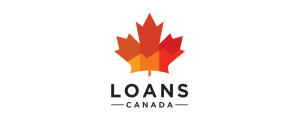 Loans Canada |
| Up to 60 months or longer | Learn More |
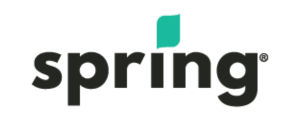 Spring Financial |
| Up to 60 months | Learn More |
 LendCare |
| Up to 180 months | Learn More |
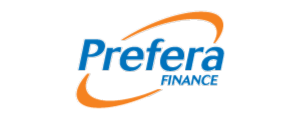 Prefera Finance |
| N/A | Learn More |
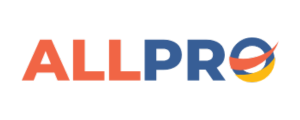 All Pro Financing |
| Up to 20 years | Learn More |
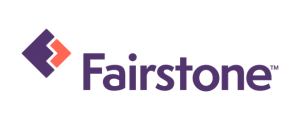 Fairstone |
| Up to 36-120 months | Learn More |
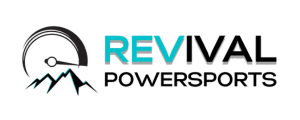 Revival Powersports Financing |
| Up to 20 years | Learn More |
 Canada Powersports Financing |
| N/A | Learn More |
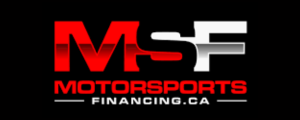 Motorsports Financing |
| Up to 180 months | Learn More |
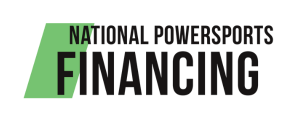 National Powersports Financing |
| N/A | Learn More |
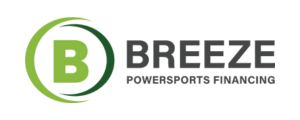 Breeze Powersports Financing |
| N/A | Learn More |
 TD Bank |
| Up to 84 months | Learn More |
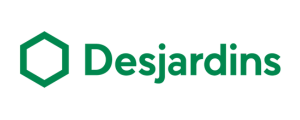 Desjardins |
| Up to 20 years | Learn More |
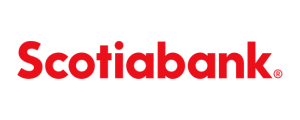 Scotiabank |
| Up to 20 years | Learn More |
 RBC |
| Up to 20 years | Learn More |
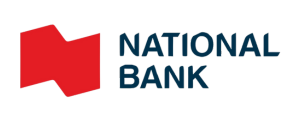 National Bank Of Canada |
| Up to 240 months | Learn More |
How To Apply For Dirt Bike Financing In Canada
Applying for dirt bike financing is quite straightforward, here’s what your options are:
1. Visit A Dealership
Many dirt bike dealerships offer in-house financing options for Honda, Yamaha, KTM and other major dirt bike brands. While buying and financing a dirk bike via a dealership is a one-stop shopping approach, you should shop around and compare options. Be sure to ask for quotes so you can choose the option that best suits your needs.
2. Apply With The Manufacturer
Many dirt bike manufacturers, such as Honda, Yamaha, and Kawasaki, offer in-house financing. Often times they’ll also have promotions you can take advantage of, however, this option is often limited to new dirt bikes only.
Dirt Bike Manufacturer Financing
| Honda | Honda Financial Services | Learn More |
| Yamaha | Yamaha Financial Services | Learn More |
| Kawasaki | Good Times Financing | Learn More |
| Suzuki | Suzuki Canada Finance | Learn More |
| Husqvarna | Husqvarna Motorcycles Finance | Learn More |
| Triumph | Triumph Triple Financing | Learn More |
2. Apply With A Lender
Whether you’re buying a new or used dirt bike, you can opt to finance it through a bank, credit union or private lender. Most banks or credit unions that offer dirt bike financing can usually be accessed via their partner dealerships.
However, if you have bad credit, you’ll have a better chance of approval with a private lender as they often have more lenient requirements. Moreover, you can easily apply for dirt bike financing online with many private lenders specializing in powersports financing.
What Do You Need To Apply For Dirt Bike Financing In Canada?
Depending on the lender you apply with, the requirements for applying may vary slightly. However, generally, you’ll need to provide the following:
- Down Payment. The lender may require you to put 10% – 20% upfront as a down payment. Though some lenders may offer down payment free loans.
- Credit Score. Most lender will require a credit check as part of their underwriting process. Be sure to check your credit score beforehand to see if you meet the lender’s minimum requirements. Good credit can get you favourable rates while bad credit may lead to higher rates or loan rejection.
- Documents. Proof of identity, income and employment are usually required. Lenders may also ask for bank statements to verify your income and debt levels.
- Insurance and Drivers License. Depending on where you live and the regulations surrounding dirt bikes, you may need both to qualify for financing.
Can You Finance A Dirt Bike With Bad Credit?
Yes, it is possible to finance a dirt bike with bad credit. You’ll generally need to apply with a private lender who specializes in powersports financing. As mentioned, private lenders usually have more lax lending criteria, making them easier to qualify with. However, in exchange for the lower requirements, you can expect higher-than-average financing rates.
Can You Finance A Dirt Bike If You Filed A Consumer Proposal?
Yes, it’s possible to finance a dirt bike after filing a consumer proposal, but it can come with extra hurdles. A consumer proposal impacts your credit score, which makes you a high-risk borrower in the eyes of lenders. However, some lenders specialize in working with individuals who have less-than-perfect credit or are in the process of financial recovery.
Just keep in mind that you’ll have limited options, higher interest rates and may require a larger down payment.
Learn more: Can I Get A Loan While In A Consumer Proposal?
Can You Finance A Dirt Bike If You Declared Bankruptcy?
While it may be difficult and more expensive to finance a dirt bike if you declare bankruptcy, it is not impossible. Many private lenders are willing to lend to individuals who’ve recently been discharged from bankruptcy. That is if you can provide proof of income and employment. If you provide a co-signer with good credit and income, your chances of approval can increase exponentially.
However, you’ll be charged higher financing rates and have stricter terms since you’ll be perceived as a high-risk borrower.
How Much Does Dirt Bike Financing Cost In Canada?
To better budget the cost of your dirt bike, it’s important to consider both the cost of the bike and the financing costs.
The cost of a bike can vary heavily depending on the model, brand, type of dirt bike and whether it’s new or used.
Factors like loan terms, interest rates, and the condition of the bike (for used bikes) can significantly impact the cost of your loan.
For example, shorter terms generally have lower interest rates than long terms as they carry more risk. As such choosing a shorter term is more cost effective, even though longer terms may lead to lower monthly payments.
Be sure to also consider additional fees such as freight, PDI, levies and extended warranty costs. This can cost a few hundred dollars. Similarly, don’t forget to budget for sales tax, which can cost a few hundred to a few thousand depending on the MSRP.
Leasing vs. Financing A Dirt Bike
Leasing refers to renting the dirt bike instead of owning it. But what exactly is the difference? Let’s run through the differences:
- Leasing: Leasing has lower monthly payments compared to financing, but you do not own the bike at the end of the lease term. However, you may have the option to buy the bike at the end of the lease. This works very well for those who want a lower monthly payment and for those who upgrade their bike more frequently.
- Financing: Financing has higher monthly payments, but you own the bike outright. This option is ideal for long-term use or if you see good value in the bike.
Learn more: Leasing vs. Buying
Loans Canada Can Help You Find Dirt Bike Financing In These Provinces
- Ontario
- Alberta
- Quebec
- British Columbia
- Nova Scotia
- Manitoba
- Saskatchewan
- New Brunswick
- PEI
- Newfoundland and Labrador
Additional Factors To Consider Before You Finance A Dirt Bike
Financing a dirt bike can be a huge financial commitment. As such, be sure to consider the following factors before you do:
Dirt Bike Licensing Requirements In Canada
In Canada, whether you need a special license to drive a dirt bike depends on where you plan to ride.
Dirt bikes are typically classified as off-road vehicles, and licensing requirements can vary between provinces. Here’s a breakdown of the rules to help you navigate what’s needed:
Private Property: Riding on private property like a backyard or off-road trail where permission is granted usually does not require a license.
Public Trails and Roads: Off-road trail riding requires a dirt bike to be registered and may require an off-road safety course. On-road riding requires the dirt bike to meet requirements of street-legal vehicles and you will need a valid motorcycle license.
Provincial Differences
While rules are generally similar, each province has specific regulations, for example:
- Ontario: Riders must register their dirt bikes with the Ministry of Transportation and display a valid permit. If you’re riding on public trails and are under 16, you’ll need an off-road safety course completion card.
- Alberta: A registration and insurance policy is required for off-road dirt bikes. You don’t need a license to ride off-road but must follow designated trail rules.
- British Columbia: Riders need to register their dirt bikes and carry liability insurance. Public road usage requires a motorcycle license and street-legal modifications.
- Quebec: Off-road riders need a valid registration and insurance. Public trail use often requires a trail permit. Motorcycle licensing is mandatory for street use.
- Manitoba: Dirt bikes must be registered under the off-road vehicle category, and safety certifications may be needed for trail use.
Dirt Bike Insurance In Canada
Insurance is mandatory if riding on public roads, trails and parks, or competitive events.
If you are off the road, you generally do not require insurance. However, as an off-road rider you may still want coverage to protect against theft, damage, or liability—especially in the treacherous and remote backtrails.
Insurance coverage provides protection against:
- Third-Party Liability: Third-party liability insurance covers damages or injuries you cause to others.
- Collision: Covers repair or replacement costs if your dirt bike is damaged in an accident.
- Comprehensive: Protects against theft, vandalism, or natural disasters.
- Uninsured Motorist Coverage: Covers injuries or damages caused by an uninsured rider.
You can get insurance through various providers such as banks, credit unions or other insurance providers. You can also get insurance coverage directly from a dealership when you are purchasing a new dirt bike.
Dirt bike insurance cost will vary based on a number of factors including your location, riding habits, the model/make/year of the bike, and your age/driving record.
Learn more: How To Buy Car Insurance
Dirt Bike Maintenance Costs
Keep in mind some additional costs of owning and using a dirt bike, this includes various maintenance expenses and storage costs.
Maintenance expenses include:
- Oil changes
- Battery replacement
- Tires and repairs
- Storage
- Winterization (including fuel stabilizer, oil and oil filter, cleaning supplies, battery maintainer, and motorcycle cover).
- Gear (helmets, gloves, and boots)
Bottom Line—Ready To Hit The Dirt?
Financing a dirt bike opens the door to adrenaline-fueled adventures without draining your bank account upfront.
Whether you’re eyeing a sleek Honda, a rugged Yamaha, or a powerhouse KTM, the right financing plan can make your off-road dreams a reality.
Just remember to weigh your options, plan for the extras, and ride responsibly.
The trail is calling—don’t let financing hold you back. Gear up, get financed, and let the adventure begin!
Dirt Bike Financing FAQs
Financing spreads the cost, while buying outright avoids interest. It depends on your budget, savings, situation and preferences. If you can somehow get 0% financing, this would be ideal as you can defer payment at no cost.

